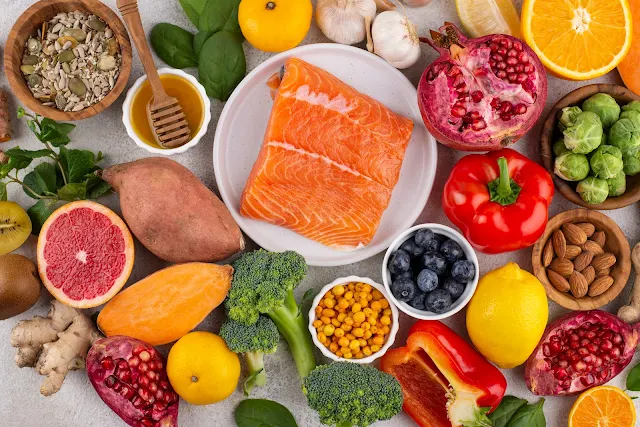In the pursuit of a healthy lifestyle, the importance of vitamins cannot be overstated. These essential micronutrients play a crucial role in various bodily functions, from boosting immunity to supporting energy production. Rather than relying solely on supplements, incorporating a diverse range of vitamin-rich foods into your diet is a delicious and sustainable way to ensure your body gets the nutrients it needs.
Vitamin A: The Vision Vitamin
Vitamin A is renowned for its role in maintaining healthy vision, promoting skin health, and supporting the immune system. Foods rich in vitamin A include carrots, sweet potatoes, spinach, kale, and butternut squash. Not only do these colorful vegetables provide a feast for the eyes, but they also deliver a potent dose of this essential vitamin.
Vitamin B: The Energy Boosters
The B-vitamin family is a powerhouse when it comes to energy metabolism. Vitamin B-rich foods such as whole grains, legumes, nuts, seeds, and leafy greens help convert food into energy, supporting overall vitality. Incorporating a variety of these foods into your diet ensures you receive a spectrum of B-vitamins, including B1 (thiamine), B2 (riboflavin), B3 (niacin), B6, B9 (folate), and B12.
Vitamin C: The Immunity Hero
Fruits and vegetables like oranges, strawberries, bell peppers, broccoli, and kiwi are packed with vitamin C, a vital nutrient for a robust immune system. This antioxidant not only helps protect cells from damage but also aids in collagen formation, essential for healthy skin and connective tissues.
Vitamin D: The Sunshine Vitamin
While sunlight is a natural source of vitamin D, certain foods can contribute to your intake. Fatty fish like salmon and mackerel, fortified dairy products, and egg yolks are excellent sources of this sunshine vitamin. Vitamin D is crucial for bone health, immune function, and overall well-being.
Vitamin E: The Antioxidant Defender
Nuts, seeds, spinach, and broccoli are rich in vitamin E, a potent antioxidant that helps protect cells from oxidative stress. Including these foods in your diet supports skin health and may contribute to a reduced risk of chronic diseases.
Vitamin K: The Bone Builder
Leafy greens like kale, spinach, and broccoli are abundant sources of vitamin K, which plays a crucial role in blood clotting and bone health. Including vitamin K-rich foods in your diet supports proper blood coagulation and contributes to maintaining strong, healthy bones.
Tips for Incorporating Vitamin-Rich Foods
Eat a Rainbow: Aim for a colorful plate by including a variety of fruits and vegetables. The different hues indicate various nutrients, including vitamins.
Explore Whole Grains: Choose whole grains like quinoa, brown rice, and oats to ensure a steady supply of B-vitamins and other essential nutrients.
Don't Forget Fats: Include sources of healthy fats, such as avocados and olive oil, to enhance the absorption of fat-soluble vitamins like A, D, E, and K.
Snack Smart: Opt for vitamin-rich snacks like fresh fruit, yogurt with berries, or a handful of nuts to keep your energy levels up throughout the day.
By embracing a diverse and balanced diet that includes a spectrum of vitamin-rich foods, you not only enhance your overall health but also savor the flavors of a well-nourished life. Remember, each bite is an opportunity to fuel your body with the essential vitamins it craves.

This article is a game-changer, thanks for sharing!
ReplyDelete